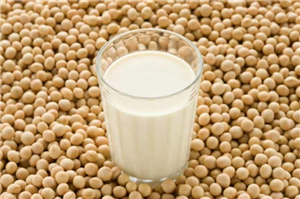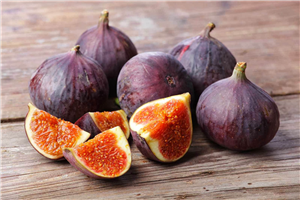Dairy and Non DairyCalcium Rich Foods
Calcium is very important for your health. Calcium is essential for general health. Most adults aged 19–50 require 1,000 milligrams (mg) of calcium per day, according to the National Institutes of Health (NIH) in the United States. This amount of calcium in milk is about three 8-ounce glasses of milk. In this article we'll discuss about the best source of Calcium Rich Foods, vegetables and fruits, Dairy and Non Dairy foods high in calcium.
Milk is the best and most widely consumed source of calcium out there, but sadly it also lists in the category of the top food allergens out there. Calcium is an important mineral that is required throughout the life. Here are some top choices to supplement your calcium intake, dairy free.
It makes up a lot of the bones and teeth and plays a part in heart health, muscle function, and signalling nerves.
For most adults, the recommended daily calcium intake is 1,000 mg per day, though women over 50 and everybody over 70 should get 1,200 mg per day, while children aged 4–18 are advised to consume 1,300 mg.
However, through their diet, a significant percentage of the population does not fulfil their calcium needs. The principal calcium rich foods are dairy products such as milk, cheese and yoghurt. However, this mineral is also high in many non-dairy sources. These include fish, leafy greens, legumes, dried fruit, tofu and various calcium-fortified foods.
Here are some Dairy and Non-Dairy Calcium-Rich Foods that may help you load up on this mineral without really having to only depend on dairy products.
Best Source of Calcium-Rich Foods
1. Soy milk:
The Soyfoods Association of North America claims that soy milk gives cow's milk a run for its money on the nutrition front. One cup of fortified soy milk contains approximately the same amount of calcium as cow's milk equivalent. The choice of a product that is fortified with calcium carbonate is essential. Also, soy milk is high in vitamin D and contains less saturated fat than whole lactose milk.

2. Figs:
Also, they have more calcium than any other dried fruit. Dried figs include 5 per cent of calcium Recommended Dietary Intake RDI in one ounce (28 grams). Also, figs provide decent potassium and vitamin K amount. Dried figs are one of the best plant-based sources of calciu.

3. Broccoli rabe
Broccoli rabe is a cool season crop. Well-drained, fertile, moisture soil is essential for good yeilds. Fresh broccoli rabe greens are an excellent source of several essential B-complex groups of vitamins such as pyridoxine, thiamin, riboflavin, and minerals such as calcium, iron, magnesium, potassium, zinc, selenium, and manganese. It provides more than half your daily value of immune-boosting vitamin C and about 3 grams of belly-filling protein. It’s also a great source of vitamin A.
4. Edamame and Tofu
Edamame is a young soybean, that is often sold while still encased in the pod. One cup of edamame (155 grams) packs 10 per cent of the calcium RDI. It's also a decent protein source and provides all of your daily folate in one single serving. Tofu made with calcium also has exceptionally high levels — you can get 86 per cent of the calcium RDI in just half a cup (126 grams).
5. Okra
A single cup of raw okra has a calcium content of 82 mg. Okra is also a big source of protein, fibre, iron, and zinc. Most people love boiled baked, pickled, or roasted vegetables. A diet rich in fruits and vegetables can reduce a person’s chances of developing a range of health conditions, including obesity, diabetes, and cardiovascular disease.
6. Oranges and Orange Juice
One big orange contains 74 mg of calcium while one single glass of calcium-fortified orange juice contains 300 mg. Blood tests showed that the study participants absorbed as much calcium from fortified orange juice as they did from calcium supplements or milk.
7. Sunflower seeds
A single cup of sunflower seed kernels has a calcium content of 109 mg. These seeds are also rich in magnesium, that balancing the effects of calcium in the body and regulating the health of nerves and muscles. Additionally, the kernels of sunflower seeds contain vitamin E and copper. Such nutrients combined can promote bone strength and resilience, and prevent bone loss.Sunflower seeds, however, may contain large concentrations of added salt, which is depleting calcium levels in the body. Pick raw, unsalted seeds to offer optimum health benefits.
Often, to prevent unnecessary calorie consumption, find a single serving one handful of kernels.
8. White beans
One cup of white beans has a calcium yield of 161 mg.
White beans are a food which is low in fat and also rich in iron. Add it to a favourite soup or salad, eat it in a side dish or use it in hummus.
Calcium-Rich Vegetables & Fruits
1. Pineapples
Pineapples are fantastic fruits, but diabetics cannot be recommended. These juicy fruits along with other vitamins and minerals are said to be loaded with calcium.
2. Litchi
Litchi may have the least amount of calcium, but it will only help add up to the mineral content when tossed with a fruit-bowl.
3. Orange
We often consume them without knowing how beneficial they are. Oranges are also among the best calcium sources following vitamin C.
4. Papaya
Papaya contains a generous amount of calcium; it is said to have about 20 milligrams per 100 grams of servings. It does make for super healthy fruit, whether you eat it raw or cooked.
5. Kiwi
Kiwis are not only high in vitamin C, but they also have a calcium content that is beneficial to the body. It's said the tropical fruit has about 60 milligrams of calcium. Make sure that you eat the fruit or gulp a glass of kiwi juice.
Food High in Calcium
Sources of calcium include:
- Milk, cheese and other dairy foods
- Green leafy vegetables – like broccoli, cabbage and okra, but not spinach
- Soya beans,
- Tofu
- Soya drinks with added calcium
- Nuts
- Bread and anything made with fortified flour
- Fish where you eat the bones – like sardines and pilchards



 Contact Us
Contact Us







 Hospitals
Hospitals
 Doctors
Doctors
 Diagnostic
Diagnostic
 Pharmacy
Pharmacy
 Health Tips
Health Tips
 Blog
Blog


















Comments